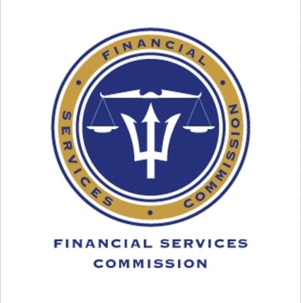Credit unions as cooperative organisations are governed by elected directors who are volunteers, and are involved in various business or professional activities, sometimes independent of those offered by the credit unions which they serve. This dynamic has the potential to create conflicts of interest, which must be carefully managed to preserve accountability and transparency, and to ensure that the best interest of the credit union is not compromised.
A conflict of interest is generally defined as a situation where one or more persons or entities have competing interests, and where serving one may cause detriment to the other. Therefore, it is in the best interest of credit unions and their membership that all persons acting on their behalf use independent judgment and are not influenced by any facts, which may give rise to a conflict of interest.
There are three types of conflicts of interest:
- Actual – you are being influenced by a conflicting interest
- Potential – you could be influenced by a conflicting interest
- Perceived – you could appear to be influenced by a conflicting interest
A useful way to identify conflicts of interest is by using the “impartial observer test” which asks:
- Are you are a member of a credit union board?
- Do you have personal interests?
- Would an impartial observer think that you are likely to be, or may likely be improperly affected by these personal interests?
Good Governance
Good governance is a central part of ensuring that a credit union is effectively working towards achieving its objectives and meeting its obligations under the law. The board member who may have a conflict of interest, as well as all other board members, are equally responsible for managing such conflict.
Failing to manage conflicts of interest affects a credit union’s governance in a number of ways, including:
1. Failing to act in its best interests
The most important responsibility of any board is to ensure that it always acts in the best interest of the organisation it governs. Failure to manage conflicts of interest indicates that the credit union board, or a member of it, is not acting in its best interests. This can seriously impair the board’s ability to make decisions that benefit the credit union and can ultimately undermine its viability.
2. Risking accountability and transparency
There can be no accountability without transparency. If board members fail to disclose a conflict of interest, they are not being frank about their personal interests before the board. Appropriately identifying these conflicts of interest is essential to the practice of good governance by a credit union.
3. Negatively affecting board dynamics
A board’s ability to function effectively as a group can be undermined if conflicts of interest are not managed. One hallmark of effective governance is a board’s ability to have impartial and open discussions, as part of a thorough examination of a credit union’s affairs. If a board member has failed to disclose a personal interest, or if it isn’t appropriately managed, then good governance is hampered.
Conflicts of interest and the law
Section 70 of the Co-operative Societies Act Cap. 378A states that
“Every director and officer of a society in the exercise of his powers and discharge his duties shall;
(a) act honestly and in good faith with a view to the best interest of the society, and
(b) exercise the care, diligence and skill that a reasonably prudent person would exercise in comparable circumstances.”
The Financial Services Commission, through Guidelines 1 & 2: Safety and Soundness, established requirements for credit unions to develop policies to govern issues of conflicts of interest. These Guidelines require that the policies must:
- establish standards of business conduct and ethical behaviour, including a code of conduct and ethical behaviour for directors, management, committee members and employees
- provide for an annual review of the code of conduct and ethical behaviour, with a requirement that it be signed annually by all those to whom it applies; the code of conduct and ethical behaviour should include the following:
- the duty to comply with Legislation
- the duty of confidentiality of information, respecting the credit union and its members
- conflicts of interest and restricted party transactions; the latter being defined in the Guidelines as meaning an officer, director, member of the credit committee, member of the supervisory committee or employee of a society or a member of their immediate families.
Conflicts of interest are often inevitable, but how a credit union responds determines the impact these conflicts will have on its operations and sustainability. It cannot be sufficiently stressed that it is the duty of all officers, directors, committee members and employees to fully disclose to the board, any situation where they may have a potential conflict of interest. It is, therefore, requisite for all credit unions to establish board-approved conflict of interest policies, which are reviewed at least annually and updated as appropriate. These policies should, at a minimum, address:
- guidance as to what constitutes actual, potential and perceived conflicts of interest
- requirements for the disclosure of such conflicts of interest
- procedures for recording and determining all declared instances of such conflicts of interest
- guidance for the resolution of instances of all conflicts of interest


